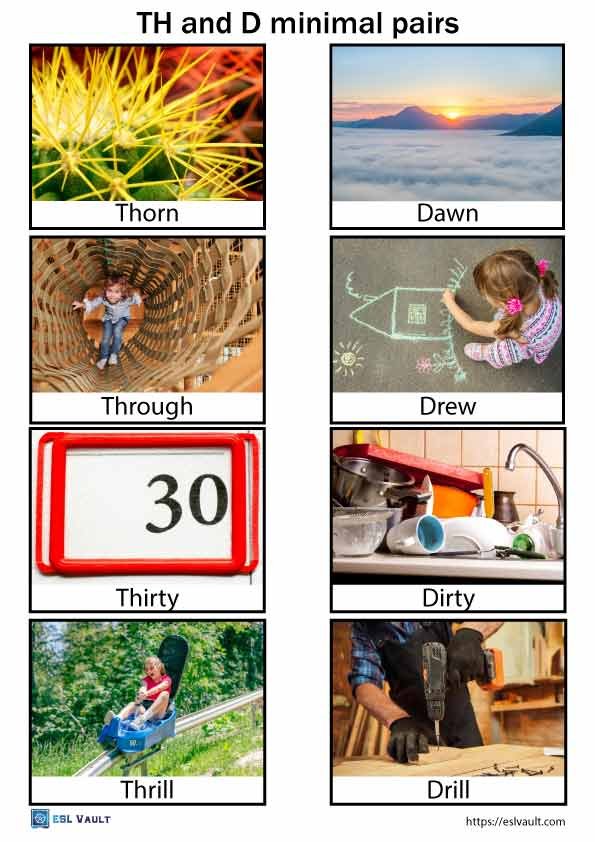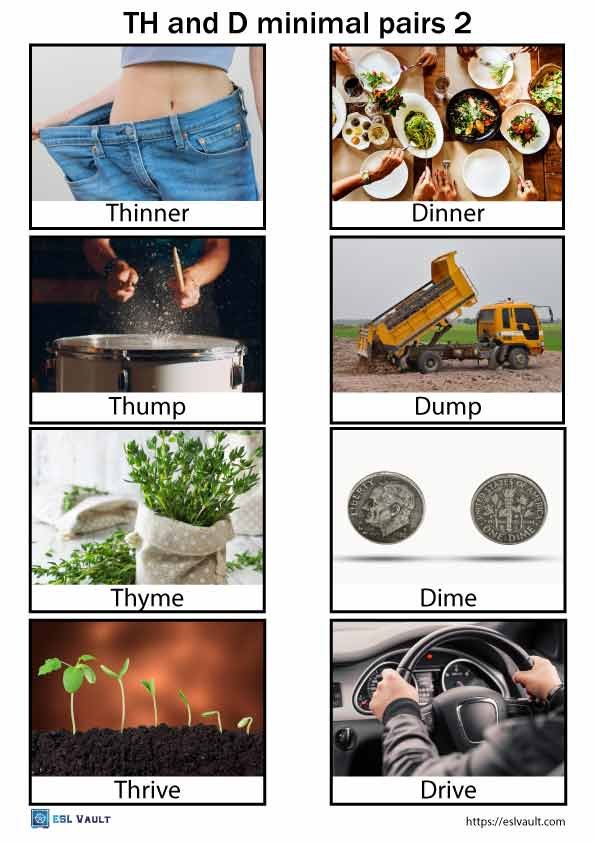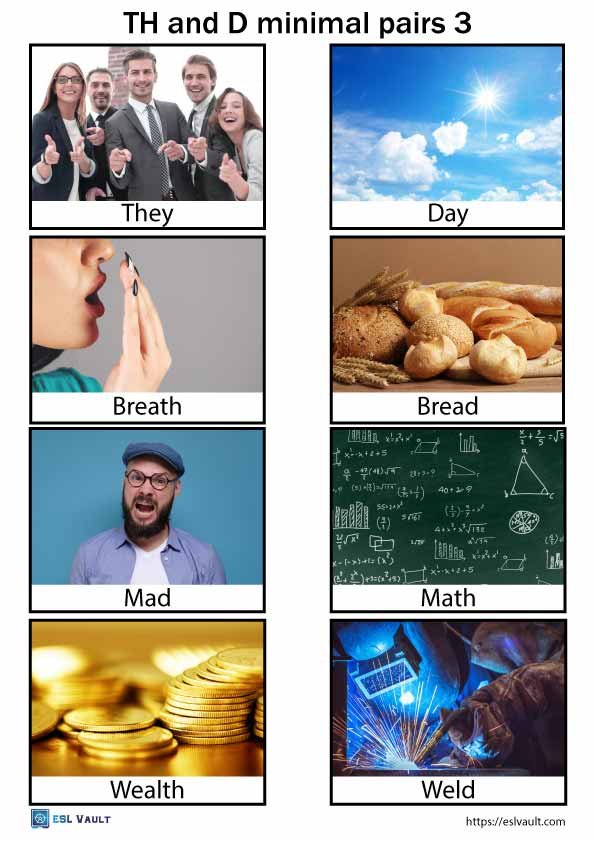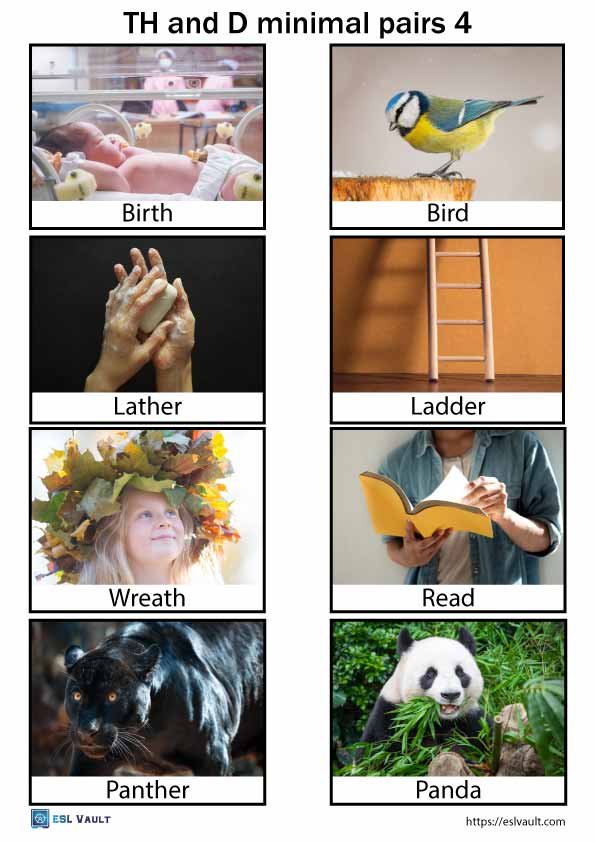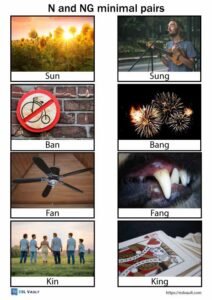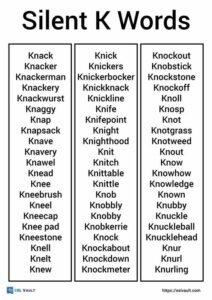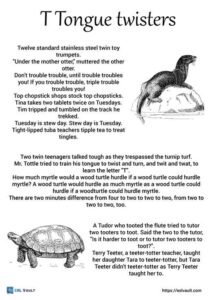TH and D minimal pairs
The difference between the TH and D sounds can be challenging for some ESL students and young learners. On this page are some useful resources that you can use to help iron out any pronunciation issues.
There are TH and D minimal pairs picture cards, a pronunciation guide, a word list, and some fun practice sentences. If you are unfamiliar with minimal pairs, they are simply 2 words that differ by one sound only, in this case TH and D.
The minimal pairs provided here differ in the initial, middle, and final position. This means the difference in the words occurs at the start, in the middle, and at the end of the words.
TH and D minimal pairs pronunciation guide
It is important to note that the TH sound of the words provided here is not always the same.
The most common sound used in these words is the hard TH sound /θ/. This is also known as the voiceless TH. For example, the pronunciation used in the words “thistle” and “three”. The soft or voiced TH /ð/ is also used. An example of this is the words “they” or “father”. For an in-depth guide on how to make these sounds check out the th tongue twisters page.
On rare occasions, the TH will be a /t/ sound. An example of this is the word “thyme”. All 3 have been used in these resources which I think helps students notice and learn the difference in enunciation. This has to be taught and doesn’t come naturally.
The other sound in these minimal pairs is the D /d/. A detailed explanation of how to pronounce this can be found on the G and D minimal pairs page.
TH and D minimal pairs list
Here is a handy list of the TH and D sound minimal pairs with some more advanced words that you can use to create your own activities.
It is important to note that depending on nationality, not all the words on this list are minimal pairs. There are different vowel pronunciations between native English-speaking countries such as the USA and England.
For example, in the UK bath and bad usually have a different sound so it isn’t really a minimal pair for British speakers. Don’t be overly concerned about this, there are only a few instances and you can just ignore words that don’t agree with you.
| bath - bad | bathe - bade | birth - bird | blather - bladder |
|---|---|---|---|
| booth - booed | both - bode | breath - bread | breathe - breed |
| cloth - clawed | death - dead | faith - fade | filth - filled |
| forth - ford | health - held | lathe - laid | lather - ladder |
| lithe - lied | loathe - load | math - mad | myth - mid |
| other - udder | panther - panda | path - pad | scythe - side |
| sheath - she’d | soothe - sued | southern - sudden | teethe - teed |
| tenth - tend | than - dan | thee - D | theft - deft |
| then - den | there - dare | these - Ds | they - day |
| thighs - dies | thin - din | thine - dine | thing - ding |
| thinner - dinner | thirty - dirty | thorn - dawn | those - doze |
| though doe | thousandth - thousand | thread - dread | thrift - drift |
| thrill - drill | thrive - drive | through - drew | thud dud |
| thug - dug | thumb - dumb | thump - dump | thunk - dunk |
| thy dye | thyme - dime | tithe - tide | warmth - warmed |
| wealth - weld | worth - word | worthy - wordy | wreath - read |
Funny TH and D practice sentences
You can ask your students to read these silly sentences for some fun pronunciation practice. Afterward, see if they can create their own!
A thug dug thyme for a dime.
Thirty panthers and dirty pandas.
A bread dinner makes your breath thinner.
It’s a thrill to drill and weld for wealth.
I dare you to lather the ladder there.

